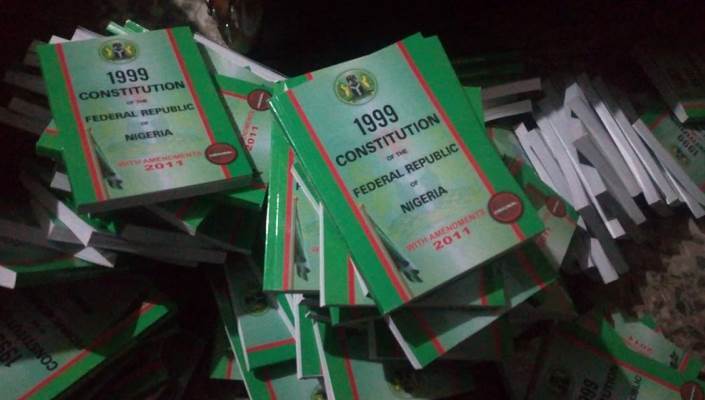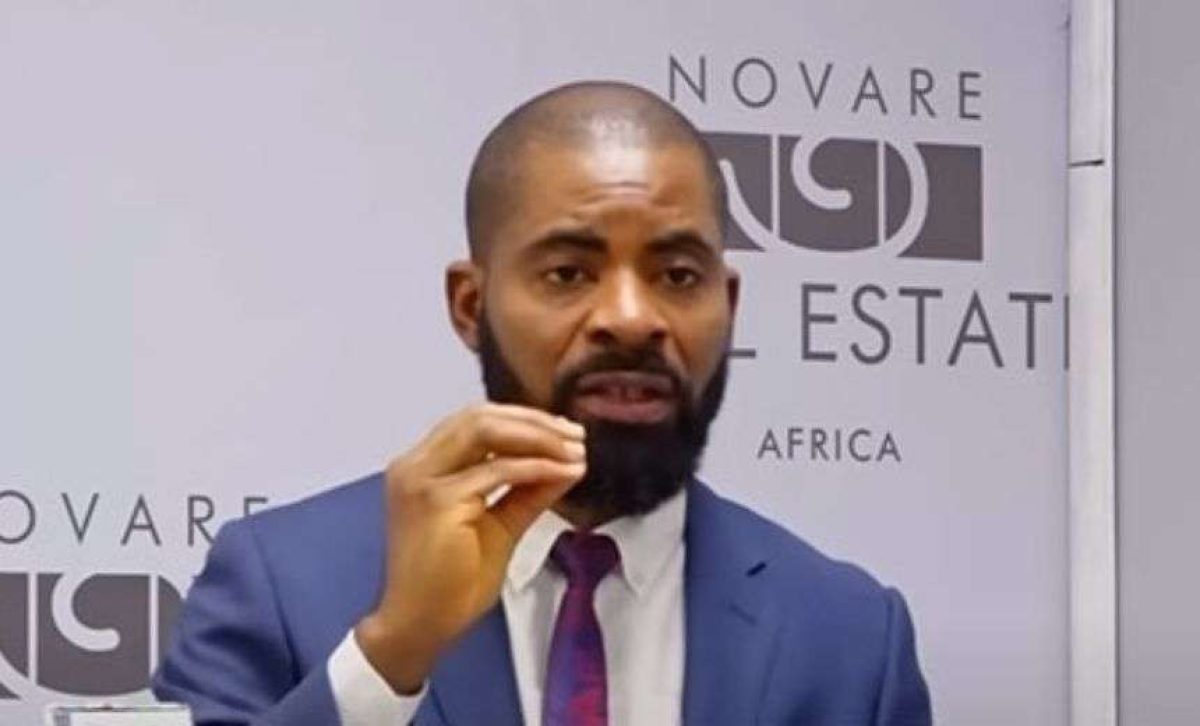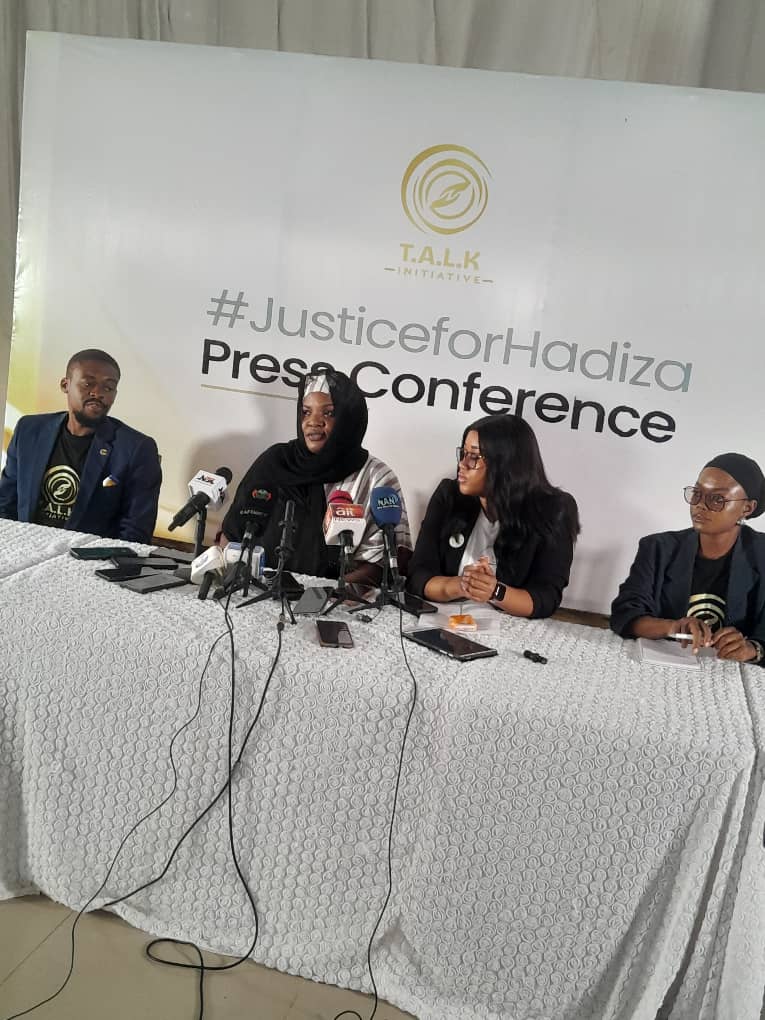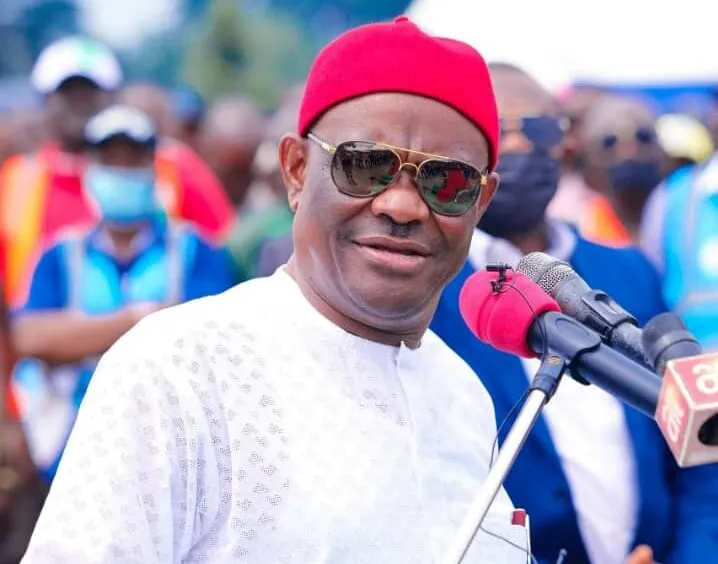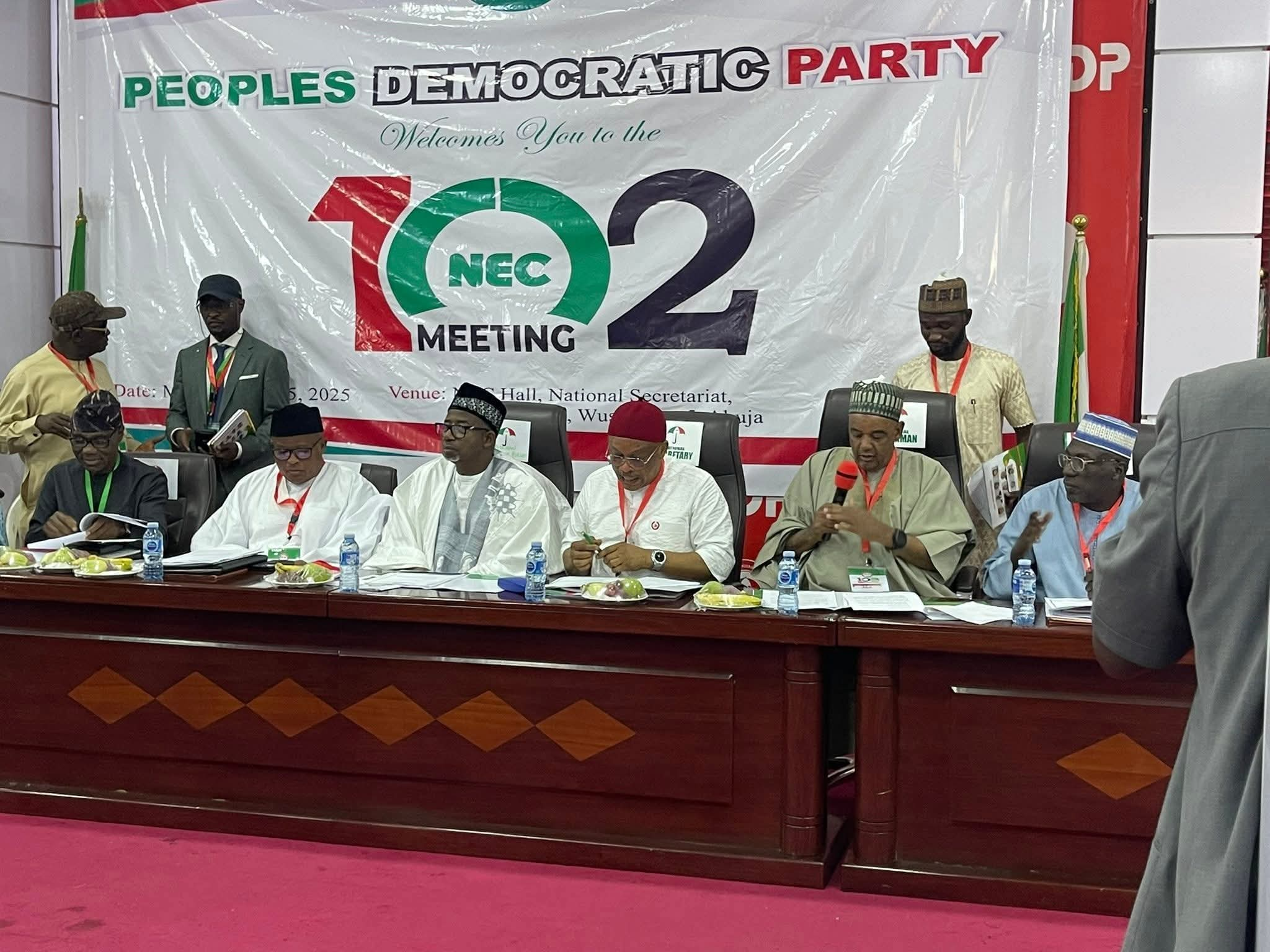…………..WHO IS A NIGERIAN.
WHAT RIGHTS DO NON INDEGENES IN THE FEDERATING UNITS HAVE.
From Vincent Egunyanga.
The much talked about the clamour for new constitution got a boost last week as the 2025 National Summit on The Future of Nigeria’s Constitutional Democracy was convened by THE PATRIOTS. The Patriots are Nigeria’s foremost group of elder statesmen and women, intellectuals and civic leaders, under the distinguished leadership of Chief Emeka Anyaoku, GCON, former Secretary-General of the Commonwealth, in collaboration with the Nigerian Political Summit Group (NPSG).
Let me state here that constitutional development in Nigeria started in 1922 with Clifford constitution. But the structure of the country as we have it today started in 1946 by what was known as Richards Constitution. The constitution divided Nigeria into three Regions. These were the Northern Region, Western Region and the Eastern Region..
Each Region developed at its own pace as there were healthy competitions among the Regions.
However there were defects in the Richard’s Constitution as it did not address the fears of the minorities in each Region. We have the Northern minorities like the Hausas, Tivs, Idomas, Yoruba etc. We have the Eastern minorities like the Ijaws, Erik’s rtc and the Western Region minorities like the Edos Urhobos, Itsekiris, Anioma. IKA, Aworis etc.
Willinks commission was however set up to address the fears of the minorities.
There was also the Littleton Constitution of 1957. There were constitutional conferences in Ibadan, London and then the 1960 independent Constitution of 1960. We had the 1963 Republic Constitution that made Nigeria a Republic. Meaning the Queen of England was no longer the Head of state of Nigeria. We had a President. The first of such was Dr Nnamdi Azikwe.
To address the issues of the minorities the then military administration of Gen Yakubu Gowon created 12 states. Though the first state that was created was in 1964 when Mid Western Region was created from the Western Region.
Since then succeeding military administrations had created states. We now have 36 states.
When the country returned to civil rule in 1979 we had a constitution. This was after a deliberation by the Constituent Assembly led by Chief Rotimi Williams who later became the founder and leader of the PATRIOTS.
Then the 1999 Constitution that we have now.
There had been arguments that the 1999 Constitution was written by the Military “not the people “. As if the military were not part of the people. It was alleged to have been written by Prof Ibrahim Yadudu on behalf of the military. But the defenders of the 1999 Constitution says it is an offshoot of the 1979 Constitution drafted by the Constituent Assembly.
Coming back to the proposed NEW CONSTITUTION. Many have argued that what we need is a new and responsible leaders who operate the constitution and not the constitution itself. Such arguments was shared by the former President Olusegun Obasanjo who in an address to the summit said what needed to be addressed were the operators of the constitution and not the constitution itself.
This arguments make sense if we remember that the British did not have a complete document known as the WRITTEN CONSTITUTION. What they have are sets of laws that guards special instances, Precedents based on esperance and Judicial pronouncements. Etc.
There have. also been some opposition to the new Constitution. Former Minister of Information Gen IBM Haruna told Thisnigeria that the talk of a new constitution is provocative.
He said the North will resist any plan of a new constitution pointing out that there is nothing wrong with the 1999 constitution.
Now let us take a look at the communique of the summit of the PATRIOTS.
“The Summit agreed that the 1999 Constitution (as amended) is deeply flawed and unrepresentative in that it was not made by the people and is inadequate for addressing the country’s pluralism and the various challenges confronting Nigeria as a nation. Therefore, delegates agreed that there is the need for a new people-driven, inclusive, democratic Constitution anchored on true federalism. For stability and maximal development, the Constitution must address Nigeria’s plurality and diversity.”
Their resolutions include:
Demand for Constituent Assembly
In order to actualise the above and other reforms agreed to at this Summit, the delegates agreed that the President be requested to introduce an Executive Bill to the National Assembly to empower the Independent National Electoral Commission (INEC) to organise elections to a national Constituent Assembly. This Assembly shall be made up of delegates elected on non-partisan basis as well as representatives of special interest groups
Referendum
The Constituent Assembly shall be responsible for actualizing a peoples democratic Constitution that will be subjected to a referendum of the Nigerian people before it is assented to by the President to midwife a peoples democratic Constitution that will be subjected to a referendum of the Nigerian people before it is assented to by the President.
4. Return to genuine federalism
The Summit calls for an immediate constitutional framework that will return Nigeria to a truly federal system of government where the federating units will enjoy their autonomy as obtained in the First Republic and other genuine democracies of the World.
Federal system of government
The Summit agreed that the current presidential system of government is too expensive, prone to abuse, constitutes a hindrance to people’s welfare and a major threat to the future of democracy in Nigeria.
Geographical restructuring
Flowing from the above resolutions, the Summit resolved that the present six geopolitical zones should be restructured in such a way as to ensure a truly federal system of government.
Devolution of federal powers
The current political reality is that too much power is concentrated at the centre. Quite enormous powers are currently concentrated in the presidency. The reduction of the enormity will discourage autocratic tendencies and encourage inter-institutional checks and balances. The Patriots therefore recommends the devolution of powers from the center to the federating units.
Legistature
The Summit agreed that a two-chamber federal legislature is unsustainably expensive for Nigeria to maintain. The Summit therefore recommends a more appropriate cost-effective system.
Administration of justice
Justice delayed is justice denied. The centralised court system has impacted the administration of justice so negatively that congestion of court registries with cases has become a problem that may never be solved unless there is a decisive Constitutional intervention. Therefore, the summit delegates recommend that there is the need for each federating unit to have its court hierarchy up to the Court of Appeal, thereby leaving the Federal Supreme Court to deal with heavy Constitutional matters, interstate disputes, and disputes between the Federal and subnational governments. The summit also recommends the creation of special courts to manage special offenses such as electoral matters, corruption and terrorism cases amongst others.
Appointment of non-politically partisan Attorney-Generals
The Summit recommends that the office of the Attorney-General of the Federation and that of the Minister of Justice as well as the office of Attorney-General and Commissioner for Justice at the state level should be separated to enable the appointment of non-politically partisan Attorneys-General.
Electoral reforms
Free, fair and credible elections are the real pillars of democracy. The current reality is a democracy that has been taken away from the control of voters. Elections are too costly and prone to fraud. Billions of Naira are spent on recruitment of electoral officers, security agencies and logistics while the courts have become the real electors of leaders. Among other reforms, the summit resolved therefore, that all elections be conducted in a single day, as this is cheaper, time-saving and less prone to fraud. Brazil and Ghana are good examples of countries that have adopted single-day elections. The Summit demand amendment to the Electoral Act and the relevant sections of the 1999 Constitution (as amended) for Bimodal Voter Accreditation System (BVAS) and electronic transmission of results real time to be made mandatory.
Independent candidature
The new Constitution should include provision for independent candidacy for aspirants who do not wish to run for elections on party basis.
Cross carpeting
The summit recommends that once a person is elected on the platform of a political party, he or she shall not defect to another political party till the tenure is over. Where this takes place, such seat shall automatically and unconditionally be declared vacant and such person shall forthwith seize to hold the office.
Cost of governance
Cost-cutting is a time-tested solution to bankruptcy. The present pseudo-federal system is too large and unmanageable. It takes so much to run while the result is over-bloated bureaucracies and political structures at both state and federal levels.
Number of ministers and political appointees
The Constitution should set caps on the number of ministers, commissioners, special advisers and such officers to reduce bloated government structures. Ministries at federal and regional levels should not be more than 15 while departments and agencies should be reduced to one quarter of the existing number.
Corruption and breach of public trust
Pervasive corruption and impunity remain symptoms of governance failure in Nigeria. These are enabled by the inherent contradictions and inadequacies in the 1999 Constitution which was imposed on the country by the military and all of which now manifest in centralised leadership structure. These flaws in the Constitution have been consistently and systematically exploited by political actors and government bureaucracies to institutionalise corruption.
The Summit agreed that for these deficiencies to be effectively tackled, there must be enough deterrence for offenders. Certainty of arrest, an uncompromised judiciary and severity of punishment, which are guaranteed deterrence to criminality, are currently circumvented with impunity in Nigeria. The Summit demands comprehensive restructuring of the police and the court system for effective, corruption-free justice delivery.
Citizens rights/empowerment initiatives
The United Nations has said that there are currently over 20 million Nigerian children out of school while over 130 million Nigerians wallow in multidimensional poverty. There is also an acute state of infrastructure decay and deficit. With over 50% infrastructure deficit that covers roads, transport, electricity, housing, water and sanitation (World Bank 2024), real development requires a dedication to system and structural overhaul much of which a people’s Constitution can direct.
Women and other groups
The Summit therefore recommends that the new Constitution should entrench robust provisions for the protection of the people’s socio-economic and political rights such as education, security and employment. Summit recommends the inclusion of women, youths, people with special needs and minorities in political participation, governance and nation building. The new Constitution should ensure gender equity in determining citizenship by marriage and the explicit provisions that protect women and the girl child against all forms of abuse and discrimination in the society.
Nigerians in Diaspora
Nigerians in the Diaspora have over the years complained of disenfranchisement and exclusion from the voting process. Currently, statistics put the figure of Nigerians in the Diaspora at over 15 million, yet these Nigerians are excluded from the voting process, despite their huge contributions to economic development through diaspora remittances. The Summit recommends the establishment of a legal framework that will guarantee the civic rights of this class of Nigerians to participate in the democratic process.
National security architecture and strategy
The virtual collapse of security infrastructure has led to the continuing death of thousands of Nigerians and the displacement of over 3 million from their homes. More than 10 million Nigerians have fallen victims of attacks by non-state actors. All these tragically impact lives, livelihood and business. Data from the National Bureau of Statistics (NBS) shows that from May 2023 to April 2024 alone, 614,937 Nigerians were killed. Furthermore, the porosity of Nigeria’s borders has contributed immensely to the worsening insecurity in the country. It enables the trafficking of weapons from as far as North Africa via Niger to Nigeria. The United Nations Office on Drugs and Crime (UNODC) reports that there are over 350 million arms and ammunition illegally circulating in Nigeria, making the country the biggest trans-border market for illicit arms in Africa.
Summit therefore recommends a broad range of measures, one of which is that there should be establishment of border/coastal security guards to support the conventional security forces. There should be enactment of statutes that will lead to the introduction of a community-based border policing model to the nation’s security systems.
Summit also affirmed the need for equity in statutory rotation of headship of national security agencies among the sub-nationals.
Secularity/religion
The Summit agreed that given her pluralism, Nigeria shall in perpetuity remain a secular state. Both the central and the sub-national governments shall do nothing to detract from this secularity.
Sub-national police
The Summit recommends the urgency of a legislative framework that would enable the creation of state police to tackle the pervasive internal security issues across the geopolitical zones.
Federal/Sub-national constitutions
The federating units should enjoy a great measure of constitutional autonomy in a federal system. The three (later four) regions of the First Republic had their individual constitutions in addition to the Federal Constitution. This is a provision which the Summit agreed should be part of the new Constitution as part of measures to reclaim the country from the vice grip of unitarism.
True fiscal federalism
The summit recommends that the new Constitution should make provision for the restoration of fiscal federalism and resource control, given the fact that all parts of Nigeria are well endowed with Natural resources.
Conclusion
The Summit leadership thanks all delegates from all the states of the federation and Nigerians in the Diaspora who attended virtually, for believing in this cause. The Summit salutes the resolve of all patriots to make Nigeria work. The current gush of enthusiasm and commitment from Nigerians of all classes across the globe is a further demonstration of the urgent need for a new nation governed by a new democratic, and inclusive constitution. With sustained action and unflagging support for the resolutions reached at this submit, it is our belief that the dawn of a new, just, equitable and peaceful Nigeria is nigh. Together, we shall live to see that new, prosperous Nigeria where no child is left behind and where no man/woman is oppressed.
That was the resolutions reached by the PATRIOTS in their summit for a new constitution. It was signed by Chief Emeka Anyaoku, the former Secretary General of the Commonwealth, former Minister of foreign affairs of Nigeria. The convener.
DEFECTS INGERENT IN THE PROPOSED NEW CONSTITUTION .
The proposed new constitution did not make its provisions justiceable. It did not take into account what will happen in the event of violations of the Constitution.
It did not addres the issues of the separation of powers between the arms of government and what can be done to prevent the Executive from pocketing both the legislature and the Judiciary.
As you devolve powers to the states how do you protect non indigenes in the states with so much powers in the federating units with control of resources, state Police etc.
You talked about state Police and there should be no state Religion. What happens to Hisbah police in some states in the North that has Shariah laws
And perhaps the most important omission is the question of WHO IS A NIGERIAN CITIZEN. WHO IS A CITIZEN OF A STATE. It did not address the issue of freedom of movement, Association, Religion etc What happens to non indigenes of the Regions or federating units. Do they have any rights. Rights to vote and be voted for. Right to own properties etc.







